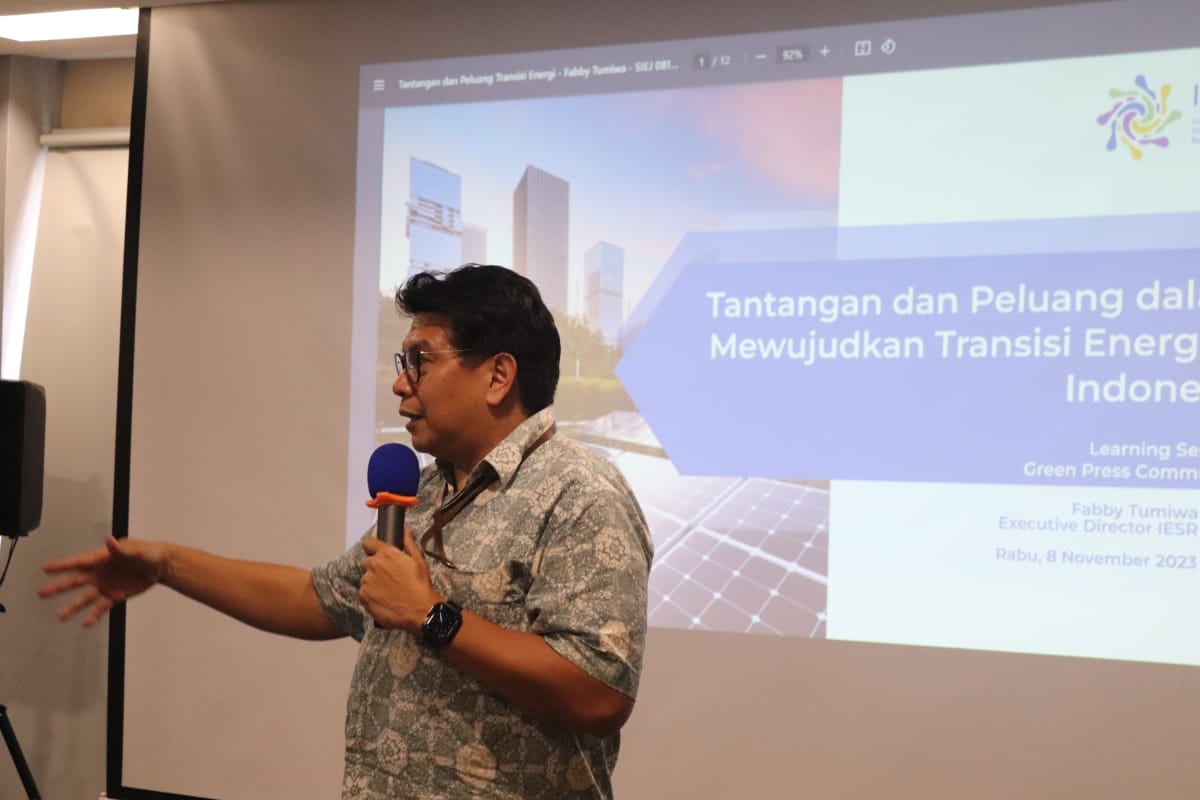Jakarta, November 8, 2023 – The global climate crisis is humanity’s biggest challenge in the 21st century. The increase in global temperatures caused by greenhouse gas emissions is causing severe impacts such as extreme weather, increased extreme temperatures, rising sea levels, and harm to ecosystems. Indonesia, as one of the signatories of the Paris Agreement, has committed to reducing emissions. Indonesia has also submitted an Enhanced Nationally Determined Contributions (NDCs) document by increasing the greenhouse gas (GHG) emission reduction target by about 2%. Previously in the Updated NDC, the unconditional emission reduction target was 29% to 31.89% by 2030, and with international assistance (conditional) it rose from 41% to 43.2%.
Reflecting on Indonesia’s latest ENDC, Executive Director of the Institute for Essential Services Reform (IESR), Fabby Tumiwa, explained that Indonesia’s climate target is not compatible with the ambition of the Paris Agreement to maintain the earth’s temperature rise at a level of 1.5C, and does not reflect the urgency of avoiding climate change whose impacts are now sweeping across the world.
“Based on the assessment conducted by Climate Action Tracker (CAT), Indonesia’s greenhouse gas (GHG) emission reduction target is considered highly insufficient, leading to 2.4ºC. To be compatible, Indonesia’s GHG emissions must reach 850 MtCO2 in 2030 and NZE in 2050-2060. To do this, we need to reduce emissions in the energy sector more ambitiously,” explained Fabby Tumiwa at the Green Press Community 2023 event on Wednesday (8/11/2023).
Fabby said that accelerating the use of renewable energy plays a key role in reducing GHG emissions. Based on an IESR study titled Beyond 443 GW Indonesia’s Infinite Renewable Energy Potentials, the technical potential of renewable energy in Indonesia reaches nearly 8,000 GW, with solar energy having the largest potential of around 6,700-7,700 GW. However, the energy transition requires regulatory, techno-economic, investment, and social support.
“This huge potential, if utilized optimally, will be able to meet all energy needs in Indonesia. IESR has projected that the country will require 1600 GW of energy capacity by 2050. However, this requirement can be met through 100% renewable energy sources, ultimately leading to zero emissions by 2050,” said Fabby Tumiwa.
The energy transition can increase renewable energy capacity and create new opportunities and an equitable and inclusive energy transformation. Moreover, decarbonization and renewable energy technologies have become cheaper and more affordable. For this reason, Fabby encourages the government to immediately make a more ambitious plan to prevent the climate crisis in Indonesia.

